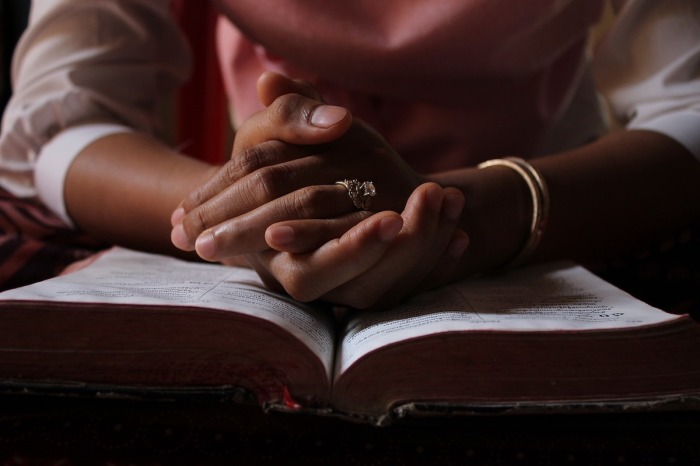
Those who identify as non-religious experience a lower level of human flourishing than the general public, while practicing Christians enjoy the most flourishing, according to a new report.
The latest installment of the State of the Bible USA 2024 report, released by the American Bible Society on Thursday, focuses on “Nones and Nominals.” The title of the seventh chapter of the report refers to the religiously unaffiliated and those who identify as a member of a religious group but do not attend religious services at least once a month.
The latest batch of research, based on 2,506 responses to a survey collected between Jan. 4 through 23, contains information about the demographic characteristics of the religiously unaffiliated. The new chapter begins by sharing data finding that the non-religious share of the population increased from 23% in 2021 to 26% in 2022. It has remained steady at slightly more than one-fourth of the U.S. population since then.
The research also compared the scores of the so-called “nones” on the Human Flourishing Index to the scores of the public at large. The Human Flourishing Index, created by Harvard University, measures an individual’s level of human flourishing on a scale of 0 to 10 based on their responses to questions about their happiness and life satisfaction, mental and physical health, meaning and purpose, character and virtue, as well as close social relationships.
Overall, the “nones” have an average score of 6.5 on the Human Flourishing Index compared to the average score of 6.9 for all Americans. The difference between the level of flourishing for “nones” and the public as a whole is most pronounced in the “meaning and purpose” domain. “Nones” have an average score of 6.3 in this area compared to 7.0 for all Americans.
Smaller differences between the “nones” and all Americans were measured in the other domains. In both the “happiness & life satisfaction” domain as well as the “physical & mental health” domain, “nones” received an average score of 6.3, while the American public as a whole had an average score of 6.8. On the “character & virtue” domain, “nones” have an average score of 6.9 compared to 7.3 for all Americans.
Very little difference was measured in the average score of “nones” (6.7) and all Americans (6.9) on the “close social relationships” domain.
The research broke non-practicing Christians into three subcategories and found that “practicing Christians” who attend church services at least once a month identify as Christian and describe their faith as “strongly important to them” score higher than all three groups of “nones.”
The term “non-Christian” refers to the “nones” as well as those who practice a non-Christian religion, the phrase “nominals” applies to those who identify as Christian but do not attend church services at least once a month, and the word “casuals” is used for those who go to church at least once a month but do not consider their faith very important to them.
Across the Human Flourishing Index and its subcategories, “practicing Christians” score the highest, followed by “casuals,” “nominals” and “non-Christians.” Overall, “practicing Christians” have an average score of 7.6 on the Human Flourishing Index, followed by “casuals” (7.3), “nominals” (6.8) and “non-Christians” (6.6).
“Practicing Christians” also have an average score of 7.6 in the “close social relationships” domain, while “casuals” (7.0), “nominals” (6.8) and “non-Christians (6.7) have lower average scores. While all categories have an average score of at least 7.0 in the “character & virtue” domain, the 7.8 average score among “practicing Christians” is higher than that of “casuals” (7.5), “nominals” (7.1) and “non-Christians” (7.0).
When it comes to “meaning & purpose,” the 7.9 average score among “practicing Christians” is significantly higher than the average scores of “causals” (7.4), “nominals” (6.8) and “non-Christians” (6.5). “Practicing Christians” actually tie “causals” with an average score of 7.2 in the “physical & mental health” domain, coming in ahead of “nominals” (6.6) and “non-Christians (6.4).
“Practicing Christians” have an average score of 7.6 in the “happiness & life satisfaction” domain, followed by “casuals” (7.3), “nominals” (6.7) and “non-Christians” (6.4).
In a statement reacting to the research, American Bible Society Chief Innovation Officer and State of the Bible Editor-in-Chief John Farquhar Plake acknowledged that, “On measures of human flourishing, Nones score decidedly lower than Practicing Christians in every category.”
“Could the church help them flourish by drawing them into a deeper connection with Jesus, the Bible, and the church community?” he asked.
While “nones” don’t identify as religious, that doesn’t mean they have necessarily shut themselves off from the message of the Bible and Christianity. The State of the Bible report reveals that 7% of “nones” use the Bible at least 3-4 times a year outside a church setting, while 3% believe that “the Bible is totally accurate in all of the principles it presents” and 10% report making “a personal commitment to Jesus Christ that is still important in their life today.”
“One quarter of all Americans are unaffiliated with any religion. In our research, we call them ‘Nones.’ It’s tempting to think they are unreachable, but one-tenth of Nones say they have made a commitment to Jesus that’s still important to them,” Plake said. “They’re not coming to church — that’s clear — but maybe the church could come to them.”
Two additional chapters of the State of the Bible 2024 USA report are expected to come out in November and December, and the finished product is expected to have nine chapters.
Ryan Foley is a reporter for The Christian Post. He can be reached at: ryan.foley@christianpost.com








